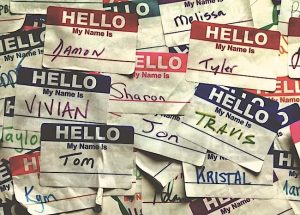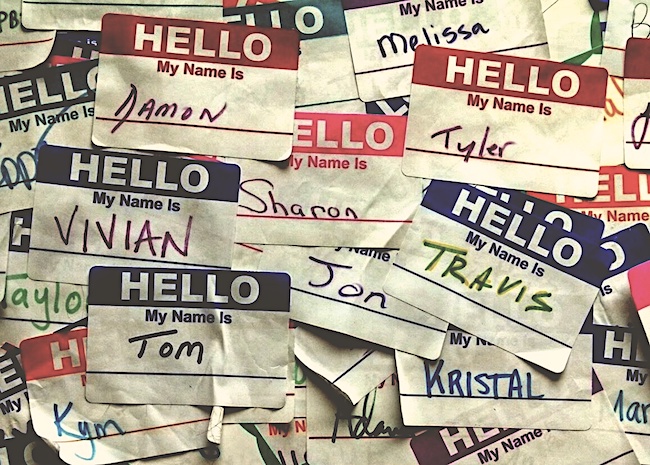
The Name Menashe Expresses Gratitude for Being Able to Forget
There is a pasuk in Parshas Miketz which has always troubled me. Over the years, we have suggested several interpretations to understand this pasuk. “And Yosef called the name of the elder son Menashe, for ‘G-d has made me forget all my hardship and all my father’s household.’ And the name of the second he called Ephraim for ‘G-d has made me fruitful in the land of my suffering.'” [Bereshis 41:51-52].
I have always been bothered by the expression “Ki neeshani Elokim es kol amalee v’es kol beis avi“. First of all, Yosef never forgot the house of his father. It was his spiritual lifeline. It kept him attached to his values.
Second of all, why wasn’t Ephraim the name he gave to his first son and the name Menashe saved for his second son? Shouldn’t gratitude to Hashem—G-d has made me fruitful in the land of my suffering—come first?
In fact, the answer to the first question will answer the second one as well. If we can understand the deeper meaning of “Ki neeshani Elokim es kol amalee v’es kol beis avi,” we will be able to understand why indeed that concept was so important that it was worthy of being enshrined in the name of his first-born son.
I saw an interpretation in the name of a Sefer Beis Pinchas (I believe this was Rav Pinchas Shapiro of Koretz): If I say something that makes you feel bad – if I insult you, I humiliate you – there is a little clock that starts ticking. The longer you are hurting, the longer the clock ticks, the more I am going to be held accountable for it. If you take the matter home and tell your wife, she will become upset, for days, for weeks, maybe even for years. Unfortunately, when the person who originally inflicted the pain goes up to the Yeshiva shel Ma’alah, he will need to not only account for the initial infliction, but also for all the subsequent pain that he caused. It is an ongoing insult that keeps on hurting—perhaps in growing magnitude—as time goes on.
That is why, the Beis Pinchas says, if someone does say something hurtful or embarrasses somebody he should try to make amends as soon as possible. The person should ideally apologize immediately because as long as the pain goes on, the original perpetrator is going to need to pay for it. It is like when you get in a cab and the meter is clicking away and you get stuck in a traffic jam in the middle of Manhattan. The car is not going anywhere but you see the meter keeps jumping: 50 cents, 50 cents, 50 cents. A ride that should have cost you $7.00 is going to cost you $27.00 – you will need to pay for it at the end because it was ongoing.
Yosef HaTzadik knew that his brothers inflicted great pain on him. The longer that he was in pain, the greater the price they were going to need to pay. And my friends, we are still paying for it. That which happened between the brothers and Yosef—the Meshech Chochmah says—this is the avi avos aveiros sh’bein adam l’chaveiro (‘the mother of all interpersonal transgressions’). Every single year, when we do teshuva (repent), we need to do teshuva for the aveira (sin) of the Aigel Hazahav (Golden Calf), which was the ultimate transgression between man and G-d. So too, we need to do teshuva for the aveira of the brothers against Yosef, the ultimate transgression between man and man. This is how the Meshech Chochmah explains the text of the High Holiday liturgy “ki Ata Salchan l’Yisrael (For You are the Forgiver of Israel – for the sins between man and G-d, the classic one being the sin of the Aigel Hazahav) U’Machalan l’Shivtei Yeshurim (and the Pardoner of the Tribes of Yeshurun – for the sins between man and man, the classic one being the sin of the Tribes for selling their brother).
Yosef wanted his pain to end so that his brothers would be spared excessive punishment. The Ribono shel Olam did him a tremendous favor and helped him forget all the suffering his brothers inflicted upon him in the house of his father. Consequently, since Yosef’s suffering came to an end, the brothers would ultimately pay less of a price and ultimately we will need to pay less of a price. This all came about “ki neeshani Elokim es beis avi.” Yosef is not saying that he forgot the integrity of the house of his father or the spirituality of the house of his father, the Torah of his father, the middos of his father, or the tzidkus of his father. For sure, that was not the case. He was merely talking about the suffering and the trauma he experienced there at the hand of his brothers. He forgot about that and went on with his life. Therefore, there would be an earlier end to the pain they would need to suffer for their cruelty to Yosef. This was such a great kindness on the part of the Almighty that it even preceded Yosef’s expression of gratitude that “G-d made me fruitful in the land of my suffering.”
The Name Ephraim Comes from the Word Efer (Ashes)
The Baalei HaTosofos say the name of Yosef’s second son—Ephraim—was based on two of the Avos, Avraham and Yitzchak. The name Ephraim (Aleph Fay Reish Yud Mem) contains the word Efer—ashes. Yosef named his son Ephraim to remind him of the two “ashes“: The “ashes” of Avrohom Avinu who said “I am dust and ashes” [Bereshis 18:27] and the “ashes” of Yitzchak Avinu who was willing to be sacrificed on the mizbeyach. Chazal speak of the “ashes of Yitzchak which remain in place on the altar.” Yosef wished to emphasize that this son, born to him in Egypt, was a descendant of Avraham and Yitzchak.
The Baalei HaTosofos add that it is for this reason that the entire nation of Israel is sometimes called by the name “Ephraim” (as we find in the pasuk “Is Ephraim My favorite son or a delightful child that whenever I speak of him I remember him more and more…” [Yirmiyah 31:19]. Why are Klal Yisrael called Ephraim? It is because we are descendants of Avraham and Yitzchak, and that is where Ephraim comes from.
Rav Aharon Yehudah Leib Shteinman [1914-2017] said that there was another reason why Yosef desired to remember the “ashes” of Avraham and the “ashes” of Yitzchak. Yosef HaTzadik quickly went from being a prisoner in a dungeon to being the second most powerful man in Egypt. For all intents and purposes, he was the second most powerful man in the world. We know what happens to people when they have such a quick rise in prominence—it often goes to their head! They become different people. We see this all too often.
Yosef wanted a reminder of who he was, and who human beings are. That is why he picked the name Ephraim—reminding him that “I am but dust and ashes.” Man comes from ‘afar‘ and to ‘afar‘ he returns. This was Yosef’s defense mechanism that his quick rise to prominence should not go to his head. Every time he would say the name “Ephraim,” he would be reminded that ‘anochi afar v’efer.’
Transcribed by David Twersky; Jerusalem [email protected]
Technical Assistance by Dovid Hoffman; Baltimore, MD [email protected]
This week’s write-up is adapted from the hashkafa portion of Rabbi Yissochar Frand’s Commuter Chavrusah Series on the weekly Torah portion. A listing of the halachic portions for Parshas Miketz is provided below:
- # 035 – Chanukah Issues
- # 077 – Prohibitions During Times of Crises
- # 126 – Dreams in Halacha and Hashkafa
- # 173 – Dreams in Halacha II
- # 219 – Chanukah Issues II
- # 263 – Women and Chanukah Candle Lighting
- # 309 – “Lo Sechanaim” Giving Gifts to Non-Jews
- # 353 – Chanukah and Hidur Mitzvah
- # 397 – Lighting Neiros in Shul; Other Chanukah Issues
- # 441 – Taanis Chalom
- # 485 – Miracle Products and Other Chanukah Issues
- # 529 – Ner Chanukah: Where, When, and Other Issues
- # 573 – The Silver Menorah and Other Chanukah Issues
- # 617 – The Bad Dream
- # 661 – Davening for the Welfare of the Government
- # 705 – Chanukah Candles, Hotels and Chashunas
- # 749 – Solomonic Wisdom
- # 793 – Oops! 3 Candles on the 2nd Night
- # 837 – Hairbrushes on Shabbos – Permitted or Not Permitted
- # 881 – The T’reifa Chicken Scandal
- # 925 – Kavod Malchus – How Far Can You Go?
- # 968 – The Minyan: Must Everyone Be In The Same Room?
- #1012 – Preparing for Shabbos – Thursday or Friday? And other Issues
- #1056 – Oops! I Made A Bracha On The Shammash
- #1099 – Havdalah or Ner Chanukah – Which Comes First? And Other Issues
- #1142 – Must I Give Up My Hiddur Mitzvah For Your Kiyum Mitzvah?
- #1185 – A Smorgasbord of Chanukah Delicacies
- #1229 – Which Is Better: Lighting Menorah Yourself Later or with a Shaliach/wife at Proper Time?
- #1273 – Chanukah Lights Motzei Shabbos: How Early? Havdala Before or After Chanukah Lights?
- #1317 – Oops! I Bentched Shabbos Candles But I Forgot To Bentch Chanukah Licht. Now What?
- #1361 – Can Women Make Latkes While The Chanukah Candles Are Still Burning and other issues
- #1405 – Can You Light Chanukah Candles In Your Car and other Chanukah issues
A complete catalogue can be ordered from the Yad Yechiel Institute, PO Box 511, Owings Mills MD 21117-0511. Call (410) 358-0416 or e-mail [email protected] or visit http://www.yadyechiel.org/ for further information.


